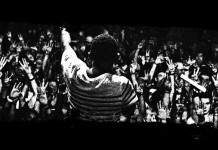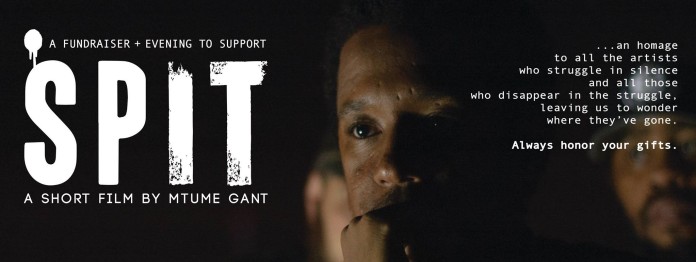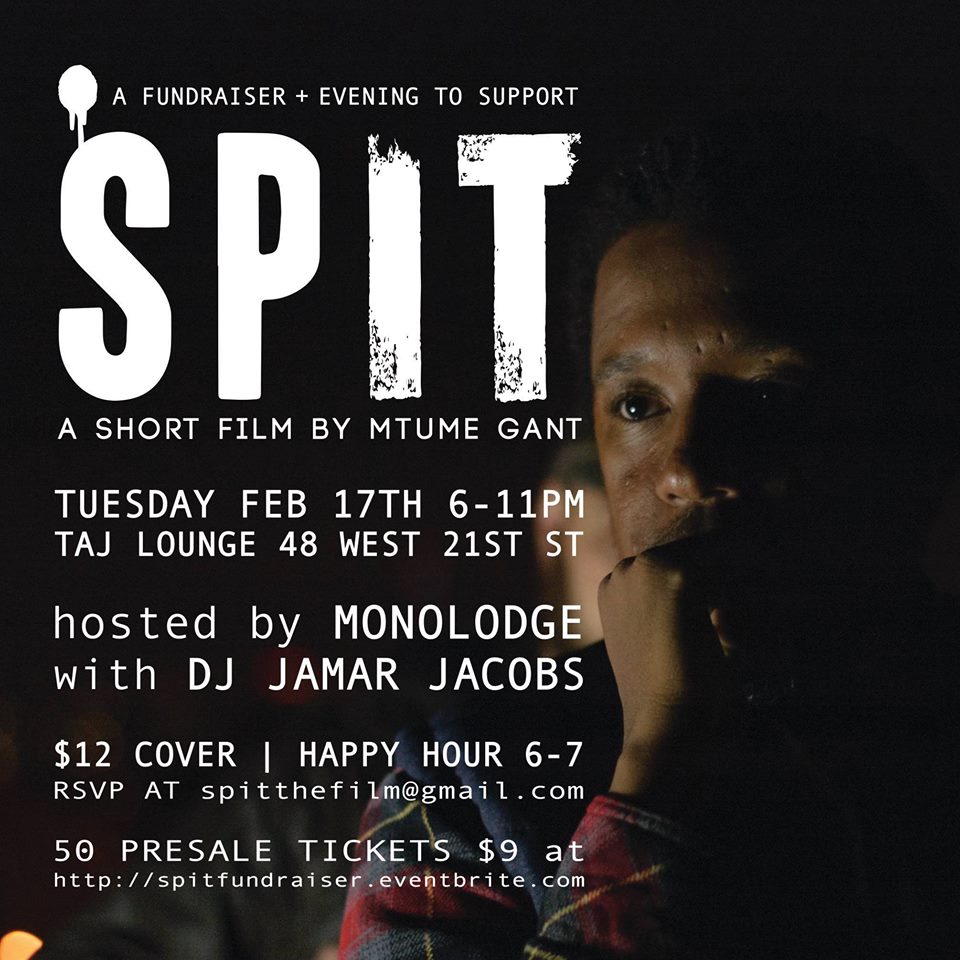In Mtume Gant’s upcoming short film Spit, the actor and independent filmmaker endeavors to tell the story of tormented ambition that face many talented, striving artists. The setting is hip hop, but the struggle, is universal.
Mtume Gant (also known as Core Rhythm) spoke with Andrea Krepelka for Birthplace Magazine to explain his inspiration for the film, his creative process and why we should always “honor our gifts.”
[vimeo https://vimeo.com/114495298]
Andrea Krepelka: What motivated you to make this film?
Mtume Gant: I guess I was motivated by inactivity. When I got the idea for Spit I was living in Los Angeles, doing the “actor” thing, trying to find my way through the entertainment business but was not having much success. I felt like I had a giant cold steel door in front of me all the time. I just had a nasty split with my acting manager who was actually a friend for a period, felt highly disrespected and after that I knew, unless I took my art into MY hands this “business” would always not accept me as is. I had always wanted to direct, but I was scared of it in many ways. Not that I could not do it, but could I take on the enormity of directing a film? Being a filmmaker has a bit of an ego attached to it, I guess I was struggling with self-confidence. So, fittingly I wrote a piece about someone whose self confidence has hit the floor. It was a purge for me. I also had a push from a few folks I knew personally to take the plunge, my good friends Conchita Campos and Jacques Dupoux were instrumental in encouraging me to have the self confidence to go ahead and make this piece. Conchita stepped right in an said “I will be on the team, no questions asked.” I wrote the script in four days, it kind of spilled out of me. I let my subconscious do the work.
You’ve got a group of very talented individuals working with you on this film. How did you go about selecting your cast and crew?
Honestly, the vast majority of cast and crew are fam. People that were friends, folks whose art I admired, but also would get the tone of the piece and instinctively would get the nuances I need. From my actors to assistant director Kai- Ti Kao, these were people who have been backbones in my life for years. The only “new” person was my soundman Mike Gassert who came through the recommendation of a good friend of mine, but when I met Mike I knew he would be a perfect fit and now he is fam.
I felt I needed people I trusted working on this film. Lameen who plays Fingers was my best friend in high school, and with his obvious talent, it made sense making him my best friend in this film. Lance, Che and Erica, we all come from the same college, I’ve always loved the hell out of their work, and Azariah I have known for years, known she is brilliant and had to have her. I [selected actors] without any auditions, just feel, nuance, energy. My director of photography, my backbone of this, Frankie Turiano, I had just worked with a few months before, but I remember him from when he was a high school student attending an arts program I used to work for. I had friends help out on crew when we needed extra hands — shout out to my homegirl Janet Woo for coming in and just making stuff happen. It was a special process.
[youtube https://www.youtube.com/watch?v=uXYfRkuA3cM]
You mentioned that you took inspiration from Andrej Tarkovsky’s The Mirror. What specifically spoke to you about this film? Were there other artistic inspirations that lead to the start of this project?
The Mirror is important to me ’cause of its lack of clear narrative but [it’s] a film where there is clear drama and conflict. I mean, one can argue that The Mirror is the greatest most original film ever made, and that Tarkovsky, if not one of the greatest filmmakers, is the greatest filmmaker who ever lived. I’ve gotten sick of the idea that there needs to be clear narrative in dramatic storytelling. The Mirror in the 1970s proved that to be hogwash. [The need for narrative] has killed storytelling because people are making themselves bound to form and not creating experiences, so we are getting this formula and it’s not expanding the artform at all.
You don’t need to KNOW, what you really need to do is FEEL!
Films from Africa, parts of Europe, South America, Asia don’t really have this problem, or don’t really have a problem creating a section of cinema that relies more on experience rather than ‘ABC’ style storytelling. America has a problem in its cinema [because] it’s bound by form. So The Mirror inspired me to create my own language. If it is like The Mirror in any way, it is that it’s a piece on personal reflection and the confusion that memory can have [on someone]. But I aimed for Spit, like The Mirror to have its own language.
Based on the promotional materials and trailer, the theme of the film is to “always honor your gifts.” Can you elaborate on this? Have you found yourself in life, where you haven’t honored your gifts and learned from this experience?
Yeah, the “always honor your gifts” line is really the hook of the piece. But I have chosen to do it [almost] ironically. I feel like it’s definitely a statement of inspiration, but maybe for some, a statement of strangulation. It’s actually the major conflict of the film, can honoring your gifts in today’s world actually be a burden? Are our gifts welcome in this current planet? Or do we have to use our gifts in a way that is not honorable to survive? These are all questions that I was struggling with when I wrote this piece, frankly I still struggle [with them]. Before I wrote Spit I had kind of taken a hiatus from creating art, I was working in a school, not honoring my artistic gifts, though I was doing important work, but I was kind of dead inside. Before that I was performing at a rate that was incredible, but it left me burnt out. I was honoring my gifts but it was not easy in a world of capitalism when you see integrity as a big a part of your gift. I honor my gifts because I know no other way, it’s not easy.
If I have learned anything, it’s that one must, at some point, accept their position in life and make a choice. Commit to your gifts or let them walk away and don’t look back. You can’t swing between both. It will destroy you.
The film is mostly shot from the point of view of lead character Jeremiah “Monk-One” Sinclair (a technique inspired by Tarkovsky’s The Mirror) why was this technique an important element in story-telling to you?
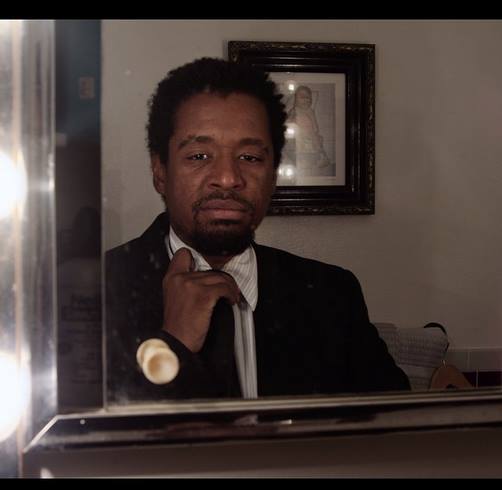
The POV came to me actually from another film, an unlikely film actually. I wouldn’t say The Mirror is as POV driven as my film, though there are a few moments in the film were there will be [conversation] between two characters but you only see one on screen. I liked learning about the person who is not on camera through someone else’s reaction to them, so often we lose the expression of the other person in films. But the film that inspired the POV was a documentary called Leviathan about fishing boat workers at sea. The whole film is shot on GoPro cameras as the men work on the boat, the water splashes all over them — you almost feel like it’s a person watching everything happen and you ARE that person, not trying to ‘relate’ like we do in most cinema experiences. That’s what I wanted Spit to feel like. To be REALLY in someone’s shoes. How does it make you feel? To have someone trying to love you but you can’t accept it? To walk into a room of faces who don’t care about you and not be able to really do anything about it? I wanted to eliminate, as much as possible, the need for judgment of Monk-One. I hope it works.
I know it will be jarring for some because its an atypical way to direct a film. Only a small handful of directors have done it well, but I felt the need to protect this character by not putting his struggles on display, but aiming for true empathy by having us sit in his place.
The film takes place in New York, and you yourself are a native New Yorker. Do you feel that the city is an additional character in this film? Was the choice in location a convenient choice or a conscious one? Perhaps both?
I know New York. I wanted to write something that I knew about. I could have easily wrote this story to take place in L.A., but I don’t know L.A. like that. The connection to L.A. is of an outsider. I wanted it to feel authentic, second nature, so it was a very conscious decision. Write what you know, they say. Is New York a character? I think for the length of the film, it was hard to do that. Maybe if I made a feature, but New York [definitely] has a presence in the film. With the rhythms and the people in the film — I filled it with New Yorkers to give it that energy. I wanted to make a New York film, like Sidney Lumet’s Dog Day Afternoon, Serpico or Network or Spike Lee’s early work — to have that New York feel of people and scenery. New York language, the overly verbose nature many of us have, we don’t see it enough on film anymore. The New York so many of us grew up in is dying. So are authentic films about the people from New York. So many think Sex and The City is New York, and I guess it is to a degree, but I never knew it that way. Much of native New York has been silenced in cinema.
It seems as though artistic performance is something that has always been important to you. What about the performing arts (music, drama and otherwise) has spoken to you? Why are these means of expression important in your life and how did that feed into the creation of this film?
It’s all I have ever known. Seriously, no joke. When other parents were taking their kids to baseball practice, my mom enrolled me in children’s theater. Art and expression has been the backbone of my life. Performance is a key for any performing artist because it’s your purge. Rehearsal is your gym and confessional, but performance is your church, your podium. I do feel like being a performer is something shaman-like. I take it very seriously. I think it’s a vital part of our world. You can tell the pulse of any culture by the spiritual level of its artists and how the audiences embrace them. Are the shamans allowed to work? Or are they being constricted? I [have] dealt with performance atypically in this film though. It’s not a “performance” film. I have attempted to show the innards of performance [through] us watching someone perform.
I want people to experience that heightened sixth sense that happens when one is performing, that cosmic self-awareness.
You say that this film is a homage to artists who struggle in silence, do you feel that sometimes you were this artist, despite your success? Was there a specific artist you’ve met in your travels that had potential and were never able to achieve the kind of success they deserve? Did you draw inspiration from their experiences?
Most artists I know struggle in silence. This is what I mean: that person on stage or that person in the movie you watch or album you listen too has other depths. Because of how our culture [teaches us to react], we think [that] since they are producing all this high art, they must be balanced. This is not the case from my experience and the experience of those I know. Especially now, there is this premium on ‘being positive’ and all this shaming towards people who struggle with life, so they stay silent. It’s not popular or attractive to be down on yourself when you are not popular. Pop stars get room to be depressed, the working artist doesn’t, they get shamed for it. I felt it was important to make a piece about someone who is losing a battle ’cause yeah, I have seen many lose the battle. There was a guy I knew. Dope emcee. One day I saw him in a suit and tie, he told me how he quit rapping cause it hurt more than healed him. He is one of many I have seen simply give up. And yeah, I’ve lost the battle a few times, but I’m still fighting the war.
You’ve used websites like Indiegogo to help fund your film. How important are these sites with regards to the preservation of indie projects? Do you think you could have made this film 10 years ago, without the help of crowd funding sites?
Honestly, I have zero faith I could have made this film 10 years ago, unless I was wealthy or famous. Telling a story like this? Black people in America don’t get to make art films, especially ones about people who are not heroic or some historic true story. Just look at Bill Gunns’ career. I give props to Indiegogo for creating this avenue. I give the people who supported me the most credit, but Indiegogo is an amazing apparatus.
Mtume Gant talks Spit on The NY Hip Hop Report
You’ve said that you’ve seen a gap in the opportunities given to people of color in the entertainment industry. Do you see this gap shrinking? Do you have hope that with projects like yours, more doors will open and more opportunities will arise?
Okay what I’m going to say might ruffle some people, but straight up, I have seen little change in the American film industry. Here is why. It’s not about Black or Asian or Latino people just ‘being in movies,’, it’s about us being able to make movies on our terms. So while yes, a few black films have come about the last couple years that have gotten huge acclaim and awards, they are still made within the limits of what the white dominated film industry in America allows. I mean would 12 Years A Slave be green-lit if it didn’t have a significant amount of white characters in it?
Does Selma happen if it’s not focusing on a character that white America has not already embraced as a national treasure?
This is not a knock on these films, so much as it explains how they were accepted. Films are still made under the iron fist of white approval in the U.S. Filmmakers, especially those of color, are neutered in this system. What I hope can happen, is that we create an alternative. All the groups that feel marginalized — people of color, women, LGBT, disabled people — just turn our backs on this system and create our own. I believe the audiences would follow. Truly I do. This is the only way, ’cause it’s not in Hollywood’s best interests to give artists control. Image is more important than dominance.
If you happen to be in the New York area please visit the Spit Fundraiser Event to help support the completion of Mtume Gant’s short film. Details of the fundraiser can be found on the “Events” page of the film’s website: www.spitthefilm.com (Limited pre-event sale tickets available here)
On Tuesday, February 17th we are having a very special Fundraiser/Happy Hour event in conjunction with the homies Monolodge at Taj Lounge in Manhattan, if you don’t know about these cats def give them a look, they run a great event and I am extremely happy they have opened their arms to us. It will be a great night where we can kick it, have a few after work drinks, good music, I’ll talk a little about the films journey in person with some of my cast/crew, a few special performances and most fresh of all I’ll show an exclusive, never seen before clip of the film! We will also have some raffles and other little things I’ll announce a little later on. All proceeds will go to help taking Spit over the Post Production hump as we gear to submit to some major film Festivals the end of February.
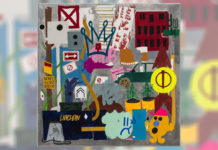
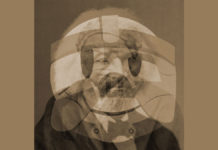

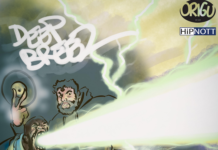

![The Underachievers – Crescendo [VIDEO]](https://www.birthplacemag.com/wp-content/uploads/2017/08/hqdefault-2-218x150.jpg)


![Fat Joe & Remy Ma ft. The-Dream – Heartbreak [VIDEO] Fat Joe Remy Ma The Dream - Heartbreak Video](https://www.birthplacemag.com/wp-content/uploads/2017/05/fat-joe-remy-ma-218x150.jpg)
![JSWISS featuring Chandanie – LML [VIDEO] JSWISS featuring Chandanie - LML [VIDEO]](https://www.birthplacemag.com/wp-content/uploads/2017/05/JSWISS-218x150.jpg)

![Akinyemi Ends Summer With “Summers” EP Release Show [9-17-17] Akinyemi 'Summers' EP release show at Brooklyn Bazaar](https://www.birthplacemag.com/wp-content/uploads/2017/09/summers-featured-218x150.jpg)
![4th Annual NYC VS EVERYBODY Yacht Party [9/16/17] #VSYacht 4th annual NYC VS Everybody Yacht Party#VSYacht](https://www.birthplacemag.com/wp-content/uploads/2017/09/vsyacht-218x150.jpg)






